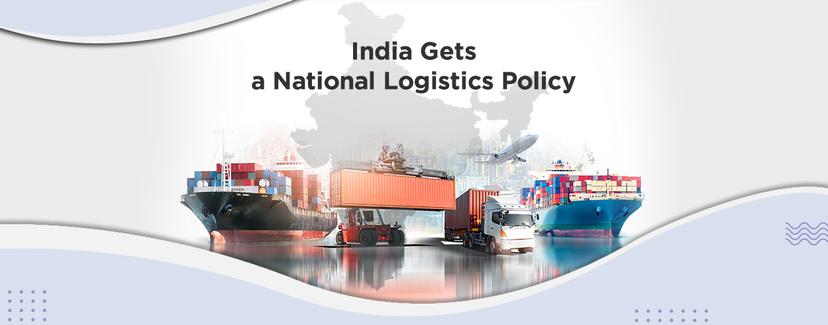
India Gets A National Logistics Policy
Prime Minister, Shri Narendra Modi launched the National Logistics Policy (NLP) at Vigyan Bhawan, New Delhi on 17th September 2022. NLP is a...
Booking cancellation/no-show fees return as the coronavirus-related downturn has driven Maersk, MSC and Hapag-Lloyd to start penalising truant shippers.

It’s been a turbulent 2020 for shipping lines with record booking cancellations and container no-shows. While such operational troubles have always plagued carriers, the scale of the problem this year is unprecedented. The reason is the coronavirus pandemic, which has swept the globe and dealt a body blow to businesses and economies apart from exacting a brutal toll on human lives.
Last-minute cancellations and no-shows by shippers can play merry hell with shipping schedules, operations and finances. To stop this practice, shipping lines have many times in the past introduced booking cancellation fees and no-show fees, only to roll them back in the face of a backlash from shippers and lack of support from rival companies as a result of fierce competition. With Covid-19 taking a huge financial toll on their businesses, the world’s top container shipping companies such as Maersk, MSC and Hapag-Lloyd have brought back booking cancellation and no-show fees.
This blog explores the ongoing crisis in the container shipping industry and its implications, with insights into the following:
Booking cancellation: A booking cancellation by a shipper becomes problematic for the carrier when it is done too close to the scheduled sailing. Carriers have a cut-off date and cut-off time for shippers. The cut-off date is the last date for cargo to be delivered at the port or terminal for loading. Similarly, the cut-off time is the latest time by which cargo must be received at a port or terminal for loading. Cancellations that come too close to the cut-off date and time can cause a sea of trouble for carriers, which we will discuss further down.
No-show: A no-show is when a shipper does not inform the carrier that he will not be going through with his booking order and simply fails to show up with his cargo at the port or terminal. It is also called “downfall”. Hapag-Lloyd chief executive Rolf-Habben Jansen says 20% of booked containers are no-shows at cargo terminals, according to a report by The Wall Street Journal published in May. And, according to a study by the New Jersey Institute of Technology, downfalls cost carriers $4.4 billion a year.
Double bookings: Shippers are known to book multiple slots to a) ensure their cargo gets shipped when containers or vessel space are in short supply, or b) get the best possible freight rate. This is a major cause of cancellations and no-shows. Such bookings are called phantom bookings.
Logistics problems: There might also be genuine reasons for a cancelled booking or no-show, such as production delays, regulatory setbacks, vehicle or equipment breakdown, or even something as simple as cargo being stuck in traffic.
Shippers argue that they are compelled to make multiple bookings because carriers overbook their vessels, the same way airlines overbook seats to ensure full flights. This leads to cargo getting rolled over, which means the shipment fails to get loaded on the ship it is meant to sail on and is accommodated on a vessel that sails on a later date. Shipping lines, on the other hand, defend their need to overbook, saying it stems from last-minute cancellations and no-shows by shippers, which have huge implications for their bottom lines. Carriers usually do not face a penalty for overbooking vessels or the problems arising from it. All in all, shipper no-shows and carrier overbookings are a vicious cycle the shipping industry is yet to find a way out of. The collective loss to the industry from no-shows and overbookings is reportedly $23 billion a year.
On the shipper: There has so far been no negative impact. Attempts by shipping lines to impose cancellation or no-show fees have mostly failed. But this might change with the latest round of penalties in the current economic atmosphere.
On the carrier: The impact is huge, say shipping lines. No-shows and last-minute cancellations mean ships sail at reduced capacity, lowering the profitability of the voyage. To fill up the vacancy, ships might lower freight rates close to the date of sailing.
What is already a massive problem for the ocean freight business has been made worse by the coronavirus pandemic. The industry is struggling with:
Record cancellations: Earlier this year, lockdowns imposed by countries to curb the spread of the virus resulted in cargo being stranded on ships and at ports and terminals for extended periods of time. In addition, demand plummeted, leading to cancellation rates touching record highs on most routes. According to Juergen Pump, North America president of container shipping company Hamburg Sud, a 15% cancellation rate is the norm in the trans-Pacific region (Asia and North America). But it rose to 40% in end-April before recovering slightly to 29% in mid-May. In addition, Hapag-Lloyd’s Jansen predicted in May that the share of no-shows would go up from the typical 20% to 35%-40% in the following months.
Blanked sailings: The cancellations prompted shipping lines to blank (cancel) scheduled sailings:
Recovery prospects grim: Shipping lines expect a recovery from the July-September quarter. But a second wave of coronavirus infections in several countries has tempered optimism. India is still struggling to keep infections under control. According to Hapag-Lloyd’s Jansen, some shipping companies may go under if the downturn extends to the end of the year and beyond.
In the recent part, booking cancellation fees and no-show fees have been around since June 2019, when Maersk, the world’s largest shipping company, introduced its online booking tool Maersk Spot. Under it, shippers who cancel a confirmed booking pay a cancellation fee. Likewise, if the cargo gets rolled over, Maersk compensates the shipper. But in the current atmosphere of economic disruptions caused by Covid-19, there has been a more concerted effort by the world’s top shipping companies to implement these penalties in all seriousness:
Note: Maersk Spot bookings will be considered within their own terms and conditions.

Cancellations and no-shows are often the result of booking in haste and without full knowledge of shipping schedules. To avoid paying the penalty:
The impact of Covid-19 on the shipping industry has not spared Cogoport and it is compelled to charge its customers a booking cancellation fee of $25 per container. The objective behind this nominal fee is to help our customers by ensuring their shipments make it on to a container and a ship at the time of their choosing. Likewise, we aim to help our carrier partners sail at maximum capacity.
Booking cancellation fee: USD 25 per teu
(Maersk Spot bookings will be considered within their own terms and conditions)
Effective from: August 10, 2020
Applicable on: All bookings, all carriers, all trade routes